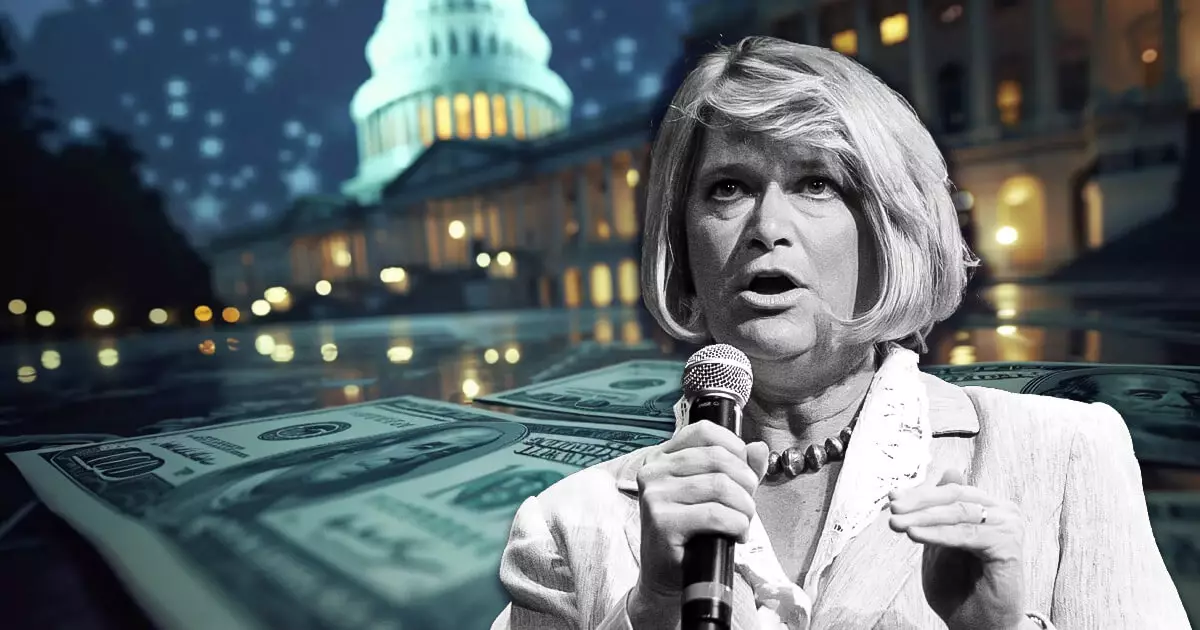In a recent interview on CNBC’s “Squawk Box,” Wyoming Senator Cynthia Lummis expressed a strong belief that Gary Gensler, the current Chair of the Securities and Exchange Commission (SEC), may not remain in his position much longer. This assertion came in response to hosts who noted Gensler’s apparent affection for his role. Lummis’s political intuition suggests that the SEC’s leadership could shift significantly, especially if former President Donald Trump returns to the White House. Notably, she refrained from speculating on the potential impact of a Vice President Kamala Harris presidency on Gensler’s tenure, illustrating a nuanced perspective on the evolving political landscape.
Classifying Cryptocurrencies: A Regulatory Quagmire
Central to Lummis’s critique of the SEC’s approach is the agency’s recognition—or lack thereof—of Bitcoin (BTC) and Ethereum (ETH) as commodities. While SEC Chair Gensler has affirmatively categorized Bitcoin as a commodity, ambiguity clouds Ethereum’s classification, a gap highlighted during a recent congressional hearing where Gensler opted for silence regarding ETH’s status. Lummis argues that the definition of what constitutes a commodity should extend beyond just these two cryptocurrencies, indicating that there are other digital assets that may also fit within this framework. This pushes for an updated understanding of the Howey Test, which currently serves as a critical evaluative tool.
Lummis’s commentary extended beyond merely identifying leadership issues within the SEC; she underscored the urgent need for cohesive and clear regulatory standards for cryptocurrencies in the United States. Drawing a contrast with the European Union, which has been actively regulating its crypto market effectively since 2023, Lummis warned that the U.S. risks falling behind in a global financial landscape if regulatory mechanisms are not promptly established. The call for clarity emanates from a growing concern that ambiguity can stifle innovation and hinder the development of the digital asset space.
A significant portion of Lummis’s critique revolves around the SEC’s current modus operandi, which she argues focuses more on enforcement through penalties rather than the creation of transparent rules. This regulatory stance has left many industry stakeholders uncertain about compliance, leading to confusion and a potential chilling effect on business development within the crypto sector. Lummis urges Congress to step in and establish a regulatory framework that can provide clarity and promote growth, rather than relying solely on enforcement actions that can lead to legal disputes.
Distinguishing Between Fraud and Innovation
In her concluding remarks, Lummis poignantly addressed a crucial distinction that regulators must grasp: the difference between fraudulent activities and the legitimate operations within the cryptocurrency realm. She pointed out that fraud can occur in various sectors, whether that be in luxury assets like yachts and art, or in digital currencies. By failing to differentiate these elements, regulators may unintentionally penalize innovation instead of fostering a healthy environment for growth. As the dialogue on crypto regulation continues, Lummis highlights the importance of crafting a legal and regulatory framework that not only protects investors but also nurtures innovation in the burgeoning crypto space.



















Leave a Reply